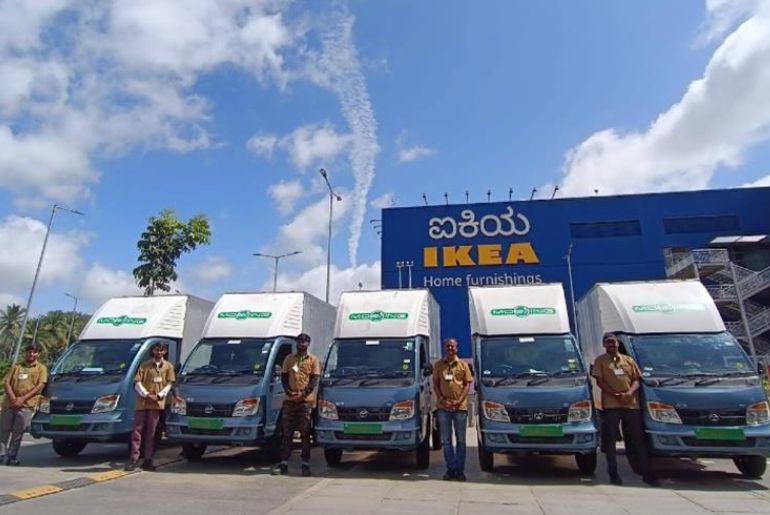By switching to 100% electric vehicle (EV) deliveries in Bangalore, Hyderabad, and Pune—with Mumbai operations to follow—IKEA India has reached a noteworthy milestone.
The business intends to introduce EVs first into all new markets, including Delhi NCR. In Hyderabad, IKEA is also testing same-day delivery, and in the upcoming year, the company wants to roll out this service throughout all markets.
According to IKEA, this accomplishment is consistent with their commitment to sustainability in India. From its early research of EVs in 2019 to 28% of green deliveries in 2023 and an 88% EV adoption rate at present, the corporation has made progress. The corporation stated that these initiatives are meant to lower carbon emissions and encourage climate control.
To support its network transformation, IKEA has partnered with local original equipment manufacturers, including small and medium-sized businesses and startups, to develop innovative mobility solutions. This collaboration is contributing to the local economy, job creation, and empowerment of small businesses.
Susanne Pulverer, CEO and Chief Sustainability Officer of IKEA India, emphasized the importance of a sustainable value chain in the company’s growth strategy. She expressed pride in leading the EV initiative from the company’s early years in India.
IKEA India’s journey towards zero-emission deliveries began in 2019 with the introduction of electric vehicles to its fleet, initially using 3-wheeled tuk-tuks for smaller deliveries. The company later incorporated retrofit trucks for larger furniture deliveries and established in-house charging infrastructure.
Saiba Suri, Country Customer Fulfilment Manager at IKEA India, highlighted that the company’s approach to sustainable logistics extends beyond EV adoption. It focuses on building efficient infrastructure, skill-building initiatives, and creating future opportunities throughout the value chain.
As part of its commitment to decarbonization, IKEA is expanding charging stations for large EVs in India and has installed EV charging stations at all its large-format stores for delivery vans, customers, and employees. The company’s EV fleet, equipped with advanced Telematics technology, can handle loads from 680kg to 1700kg.
IKEA aims to achieve 100% EV deliveries across all its operations by 2025, focusing on large-scale EV fleet expansion, continuous innovation, and collaboration with the government. This initiative is part of IKEA’s global goal to become climate positive, halve greenhouse emissions across its value chain by 2030, and reach net-zero emissions by 2050.
IKEA’s sustainable transportation extends beyond its operations in India, reflecting a global strategy to reduce its environmental impact. In various countries, IKEA has been implementing EV solutions tailored to local conditions and infrastructure.
In Europe, IKEA has made significant strides in electrifying its delivery fleet. For instance, in the Netherlands, the company achieved 100% electric home deliveries in Amsterdam as early as 2018.
This initiative has since expanded to other major cities across Europe. In the United Kingdom, IKEA partnered with Renault to introduce custom-designed electric vans for last-mile deliveries in London, aiming to electrify its entire UK and Ireland delivery fleet by 2025.


